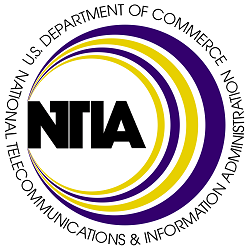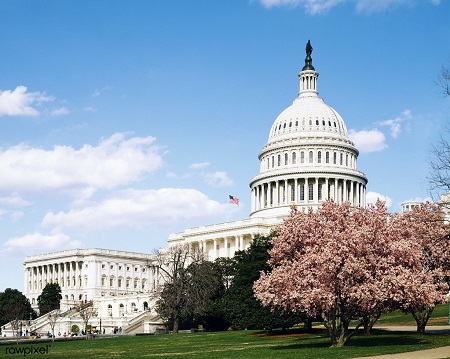
The NTIA (National Telecommunications and Information Administration) insists that the 17 state laws that hamper nationwide community broadband deployments won’t delay a massive looming infusion of infrastructure broadband subsidies. But one industry group isn’t so sure.
BroadbandNow, a website dedicated to tracking the U.S. broadband industry, issued a report claiming that state restrictions on community broadband networks could delay the delivery of more than $42.45 billion in BEAD (Broadband Equity, Access and Deployment) grants made possible by the recently-passed Infrastructure Investment and Jobs Act (IIJA).
Such bills, often ghost written by the telecom industry by policy and lobbying intermediaries, often limit the construction or financing of community broadband networks, even in unserved areas that regional telecom monopolies have long neglected.
Covid’s home education and telecommuting boom highlighted the restrictive and often counterproductive nature of such bills, leading two states — Arkansas and Washington — to remove the barriers. And in Colorado earlier this month, Gov. Jared Polis signed Senate Bill 23-183 into law that eliminates an older 2005 law backed by regional telecom monopolies, which imposed cumbersome and onerous restrictions on Colorado towns and cities looking to build better, more affordable community-owned and operated broadband networks.

But according to BroadbandNow, the remaining restrictions in 17 states could hamper the speed and scope of eagerly awaiting BEAD funding, encourage additional states to eliminate their own restrictions, and generate a renewed debate over the harmful nature of such bills. (BroadbandNow has one less state on its list where community broadband is restricted than we do. Our list counts 17 states).
“States will likely react to this in various ways when the time comes to submit their broadband plan to the NTIA,” BroadbandNow insisted. “It will almost certainly open up a discussion in states where restrictions are in place, as municipal providers in these states will be able to petition the NTIA directly for funding if the state refuses to include them in their plan.”
NTIA Claims There’s Nothing To Worry About
Asked to respond to the claim that state restrictions could delay BEAD funding, the NTIA told FierceWireless there was nothing to worry about. While the NTIA’s notice of funding opportunity (NOFO) guidance on BEAD funding does urge states to be transparent about any such restrictions and consider eliminating them to maximize funding, there’s nothing in the language requiring that states actually do so.
“We want to get the best possible networks built, and to do that, we’ve asked states to create a level playing field on which municipalities, cooperatives, and small, medium, and large companies can all compete for these funds,” the NTIA representative said.
"There is nothing in our rules that any state’s or territory’s BEAD allocation would be delayed or reduced due to a state’s restriction on pre-existing public eligibility to compete for BEAD grants,” the spokesperson further clarified.

Brandon Carson, Director of Pennsylvania's Broadband Development Authority, and Patrick Redmond, Nebraska’s interim broadband director, also told the outlet they didn’t expect any meaningful BEAD funding delays caused by state municipal broadband restrictions.
“The NOFO itself makes it clear that waiving these laws is simply one option among many,” Redmond said. “In our case, we would indicate how our laws will be applied in connection with competition for sub-grants.”
Even the voluntary NOFO guidance urging states back away from municipal broadband bans are proving too much for some lawmakers. A coalition of Republican leaders, including Senators Ted Cruz (R-TX) and Marsha Blackburn (R-TN), sent a letter to NTIA Chief Administrator Alan Davidson last week urging him to back away from the requirements.
In a statement, Senator John Thune (R-SD) called the NTIA’s voluntary request for states to consider backing off of state municipal broadband restrictions part of a “liberal wish list” providing “favorable treatment to government-owned networks over private investment.”
Thune also took time to spread several common falsehoods about municipal broadband, including the false claim that municipalities are inherently less capable than private ISPs at broadband deployment (something that would be a surprise to city-owned networks such as Chattanooga’s EPB Fiber), or that such builds had an inherently higher rate of failure.
“This misguided incentive, which was not included in the IIJA, could divert program dollars to less capable providers—a real risk given municipal broadband’s track record of costly failure,” Thune said.
Thune echoed a familiar but misinformed view of municipal broadband consistently disproven by ISLR research, which documents lasting and notable financial benefits in municipalities that have deployed their own community-owned and operated broadband networks.

To that end, U.S. Rep. Anna G. Eshoo (D-CA) and Sen. Cory Booker (D-NJ) reintroduced the Community Broadband Act, which would eliminate all state laws that “shield incumbent Internet service providers from competition and tie the hands of communities that want to improve broadband options or build-out to unserved areas that private providers refuse to connect.”
The bill, which was also introduced in 2021, has struggled to gain traction in a U.S. Congress heavily lobbied by dominant regional incumbent telecom monopolies.
Other issues could still hamper timely BEAD funding deployment, including ongoing efforts to improve the FCC’s notoriously unreliable broadband maps, which have historically understated the impact on telecom monopolization and market failure, often making it difficult to funnel grants and subsidies to underserved and unserved areas truly in need.
While the new FCC maps have included a process to challenge inaccurate FCC data and ISP coverage claims, some state leaders have complained that the challenge process itself has proven to be a cumbersome mess that often favors entrenched providers looking to hamstring any and all potential competitors.
Stormy Weather Could Still Be Just Over The Horizon
Tyler Cooper, Editor-in-Chief at BroadbandNow, told ILSR that extensive optimism regarding potential BEAD funding delays could prove premature.
Historically, various state and federal regulatory agencies and politicians don’t have a great history of competent coordination or standing up to politically powerful regional monopolies. Expecting that to suddenly change while implementing one of the biggest and most complicated broadband subsidy programs ever conceived could prove unrealistic.
“States that already take a restrictionist stance toward a public option for broadband already employ a wide variety of tactics to prevent such entities from functioning efficiently—or at all in many cases,” Cooper said. “It's not hard to imagine these states doing anything they can to prevent funds going to municipal providers, even if that means tying up the BEAD process.”
Charter Communications has often saddled grant applicants at the NTIA with costly and burdensome challenges using the FCC’s historically flawed broadband mapping data. Elsewhere, monopoly lobbyists have convinced several state legislatures to implement laws directing funds away from municipal broadband projects, contrary to NTIA rules.
“Above all, I think the most interesting element here is that the [infrastructure] legislation seems to have presupposed that some states might fight this battle, given the provisions where municipalities and ISPs can ask for grants directly from the NTIA if a state refuses to agree with the requirements of the legislation,” Cooper said.
The latest, updated version of the FCC’s broadband maps are expected to be released by May or June, with state BEAD allocations based on that map expected by June 30. That release in turn begins a 180 day timeline for states to submit details on BEAD structure proposals.
“My prediction is that this will open up a larger dialogue within each state about restrictions on municipal broadband,” he added. “Since every state has to put its plan out for public comment before submitting it to the NTIA, the language used will force a state to defend its plans to the public if it refuses to allow grants for local municipal groups. This might create the opportunity and visibility required for public pushback – which is very different from setting such policies behind closed doors in the legislature.”
Numerous state legislatures are effectively rubber stamps for the whims of entrenched telecom monopolies, making repeal of community broadband restrictions a steep uphill climb. Still, Cooper suggests that an historic infusion of broadband grants are creating freshly fertile soil for more transparent conversations about the harmful nature of such bills.
“Ultimately, this issue could very well manifest itself not as a delay of funding as a whole from the NTIA to states, but as a delay for the municipal providers in restrictive states who will understandably do anything they can to receive their share of the state allocation,” he said. “If it comes down to these groups having to petition the NTIA directly for funds, we are sure to see a fight over it.”
Header image of the United States Department of Commerce Herbert C. Hoover Building in Washington, D.C. courtesy of Flickr user Ken Lund, Attribution-ShareAlike 2.0 Generic (CC BY-SA 2.0)
Inline image of U.S. Capitol building courtesy of Flickr user Wally Gobetz, Attribution-NonCommercial-NoDerivs 2.0 Generic (CC BY-NC-ND 2.0)







